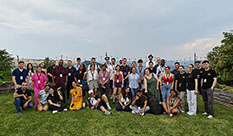More:
Events
New Materials, Advanced 2D Surfaces and Innovative Medical Technologies Spark Imagination
The 5th International Symposium – “Nanotechnology from Academy to Industry 2022 –NTAI 2022”, which took place on the HIT campus this August 24-25, brought together under HIT’s roof researchers from academic institutions from Italy, Spain and the Czech Republic and Israeli researchers from the Weizmann Institute, the Technion, Hebrew University, Tel Aviv University and Ariel University.
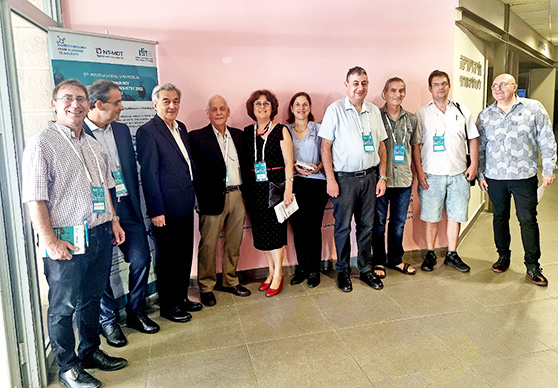
The conference focused on breakthrough nanotechnology developments in the fields of medicine, energy, materials engineering and more, and as its name implies, demonstrates the cooperation between academic research and the nanotechnology industry.
In his opening remarks, Professor Eduard Yakubov, President of HIT, noted that "the demand for nanotechnologists is constantly increasing. This superb human capital is a pillar of Israel’s scientific and technological strength, and we must ensure the ability of the country’s academic institutions to train them."
Prof. Yakubov also indicated that achievements in nanotechnology have led to unprecedented acceleration and progress in scientific research in a growing number of fields. This 5th conference, which puts a spotlight on the cooperation of the academy with the industry, gives testimony to its importance. He continued: “We are proud to see the far-reaching response we received from our colleagues at important Israeli and global academic institutions and successful corporate enterprises as they unite under the banner of nanotechnology.”
The conference dedicated some of its sessions to groundbreaking applications in medicine using nano-technological components, including nanotubes made of inorganic materials which allow precise targeting of medication into the structures of the diseased cells in the body organs that need them. Also presented were innovative and pioneering technologies for 3D printing of implants from human cells, single-molecular methods for biomedical applications, drug delivery solutions and more.
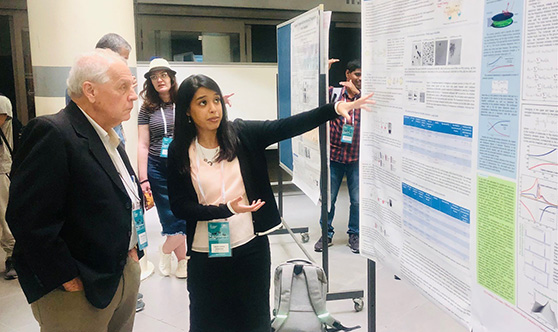
The Chairperson of the conference, Prof. Alla Zack, Head of the Laboratory for the Production and Synthesis of Nanomaterials at HIT, shared the goals of the conference: "We gathered together an impressive group of leading researchers from Israel and the world, and we received an overwhelming response. The conference will present inspiring developments which set a high bar in diverse areas such as Nano-medicine, green energy and opto-electronics.
The conference also presented the achievements of various HIT laboratories, including the laboratory which creates nanomaterials and studies their properties -- the only one in the world that has developed and synthesized the highly sought-after multifunctional WS2 and MoS2 nanotubes. Thanks to their unique properties, the nanotubes developed at HIT have many applications: medical devices, renewable energy sources, the automotive industry, defense industries and the development of innovative batteries."
One of the keynote speakers at the conference was Prof. Antonio Di Bartolomeo, President of the Physics Council of the University of Salerno in Italy, who lectured on 2D materials and their advantages in the field of electro-optics. According to him, this is a relatively new field that was established in 2004, and subsequently generated huge interest in 2010 with the discovery of Graphene - a 2D sheet of carbon atoms arranged in the form of hexagons. Graphene is considered the strongest and thinnest material existing which can be processed and manufactured. Prof. Bartolomeo lectured about the capabilities of this material and its uses, including accurate and sensitive identification of materials.
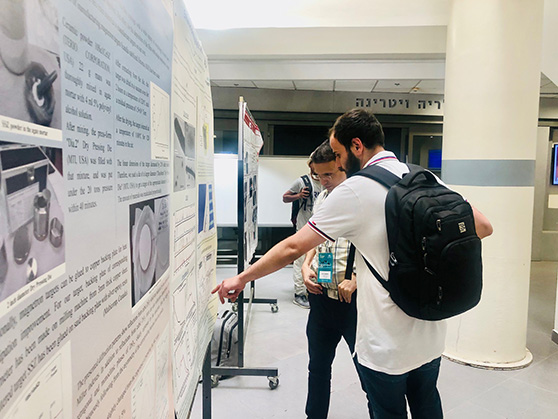
Prof. Julio Alonso, Keynote speaker from the University of Valladolid in Spain, lectured on "Hydrogen absorption and storage in layered and porous materials". The lecture dealt with innovative, revolutionary and safe methods to store fuel for hydrogen engines by using porous and multilayered materials. The improvement in safety and efficiency of hydrogen powered engines may accelerate the hydrogen engine revolution and change the way the world moves.
Nanotechnology in the worlds of medicine, was well reflected in this conference: Prof. Ofra Benny, keynote speaker from the Pharmacy School in the Faculty of Medicine at the Hebrew University of Jerusalem, gave a lecture on the integration of engineering with biology in the development of therapeutic and diagnostic tools for cancer patients. According to her, the idea is to develop nanometer materials that are able to deliver drugs in a targeted manner to cancerous tumors, based on the physical properties of the particles. Using this method, the particles can be targeted to cancer cells based on their mechanical properties, which is a great innovation. "We showed a new relationship that exists between the malignancy of cancer cells and the mechanical properties of the cells themselves and their ability to swallow particles," said Prof. Benny.
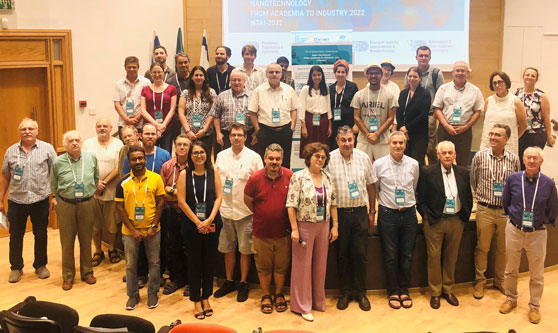
Members of the Organizing Committee:
Honorary Chairperson - Prof. Reshef Tenne, Weizmann Institute
Chairperson - Prof. Alla Zak, HIT
Dr. Amos Bardea, Dr. Alex Laikhtman, Prof. Boris Fainberg, Dr. Alexander Axelevitch
The conference, which will continue tomorrow as well, arouses great interest in the scientific community and the abstracts of the lectures can be found on the conference website.
Posted: 25/08/2022
- News & Events
International Week of Interdisciplinary Studies and Academic Collaborations in Crete
A substantial delegation of 16 students and four faculty members from HIT Holon Institute of Technology participated in week-long international activities and events at HMU-Hellenic Mediterranean University in Crete. ...


 Additional programs
Additional programs
